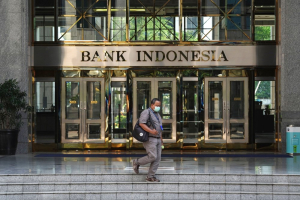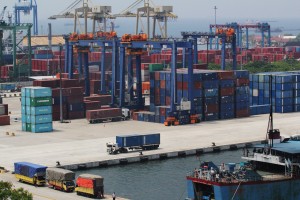Trump's policy triggers global trade restructuring, oil prices to plummet: Expert
The reciprocal tariff policy of United States President Donald J. Trump against a number of trading partner countries has the potential to trigger restructuring of international trade, which is anticipated to lead to global economic slowdown and a sharp decline in world oil prices and in particular affecting the Indonesian economy, says an expert.
Energy expert from the Department of Economics, Padjadjaran University, Yayan Satyaki, said that world crude oil prices are expected to drop drastically to reach the range of US$50-60 per barrel by the end of 2025.
"Based on daily data such as the Dow Jones Industrial Index and Brent Oil prices, as well as econometric analysis, there is a global economic slowdown of -2.5 percent. This has a direct impact on the prospects for world oil prices," Yayan said in an interview with Indonesia Business Post, on Tuesday, April 8, 2025.
He cited that the high tariff policy imposed by the U.S.will not only have an impact on trading partner countries,such as Canada, Mexico, and China, but also shake the stability of international trade.
"The impact of this policy in reshaping international trade could be very large. The prices of major commodities will be hit," Yayan said.
For Indonesia, he added, the decline in oil prices will have a two-sided impact. On the one hand, lower fuel prices will ease the burden on the people. However, on the other hand, state revenues from the oil and gas sector are expected to erode sharply.
Yayan also warned that the decline in oil prices would depress the prices of other commodities such as palm oil.
"Palm oil could fall by 20-30 percent, which will certainly have a major impact on exports and the welfare of farmers," he said.
Not only that, the slowdown in global consumption triggered by trade uncertainty has also affected the national capital market.
"The Indonesia Stock Exchange Composite Index (IHSG) has been under pressure, falling by 5-10 percent due to negative global sentiment," he said.
Yayan estimates that if there is no intervention policy from the government, the global economy could continue to experience a slowdown of 1-2 percent every month.
This change in international trade patterns will be very pronounced in natural resource-based commodities and the manufacturing sector which has close ties with the U.S. market.
However, Yayan assessed that this condition could also be a strategic opportunity for Indonesia to carry out economic transformation.
"The decline in energy prices should be used to strengthen domestic industry and encourage exports. The government needs to shift towards more productive investments," he concluded.
Tag
Already have an account? Sign In
-
Start reading
Freemium
-
Monthly Subscription
20% OFF$29.75
$37.19/MonthCancel anytime
This offer is open to all new subscribers!
Subscribe now -
Yearly Subscription
33% OFF$228.13
$340.5/YearCancel anytime
This offer is open to all new subscribers!
Subscribe now







